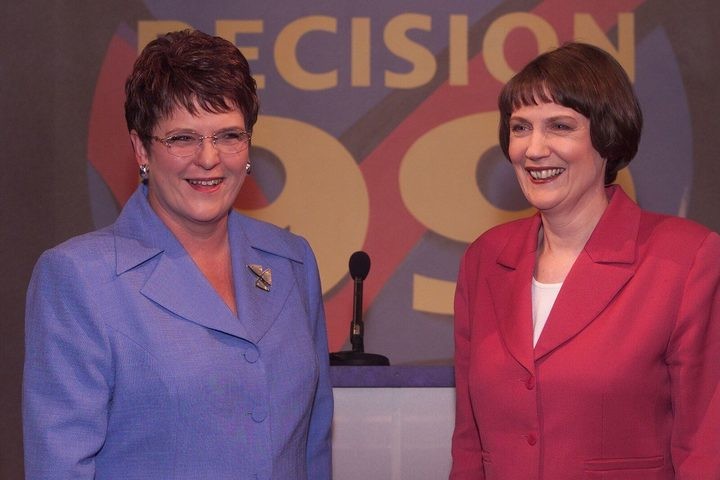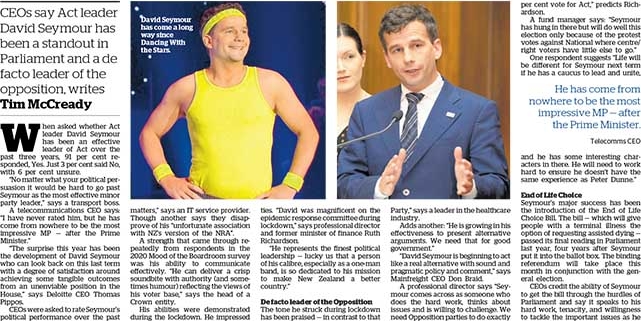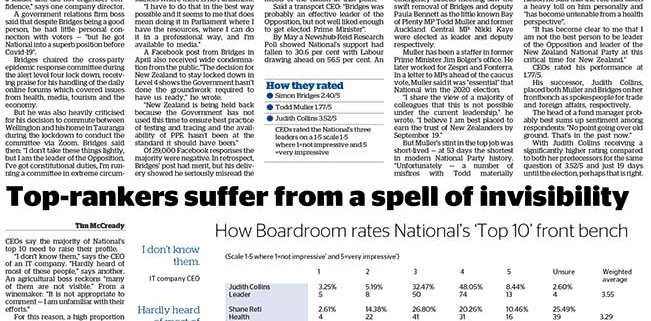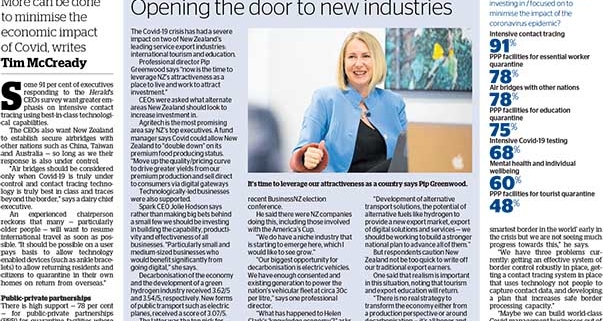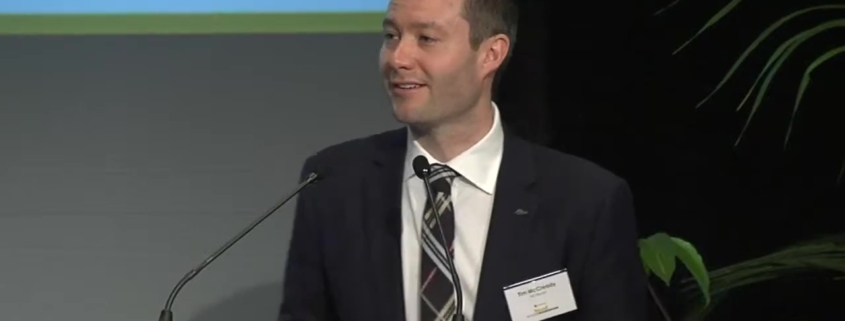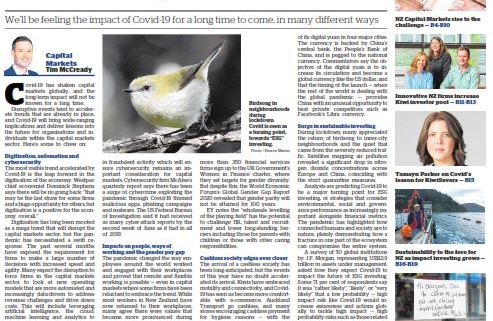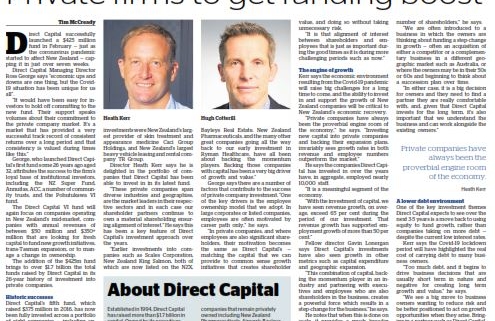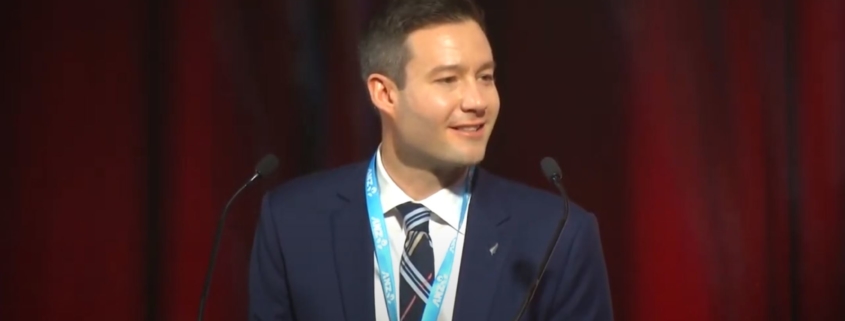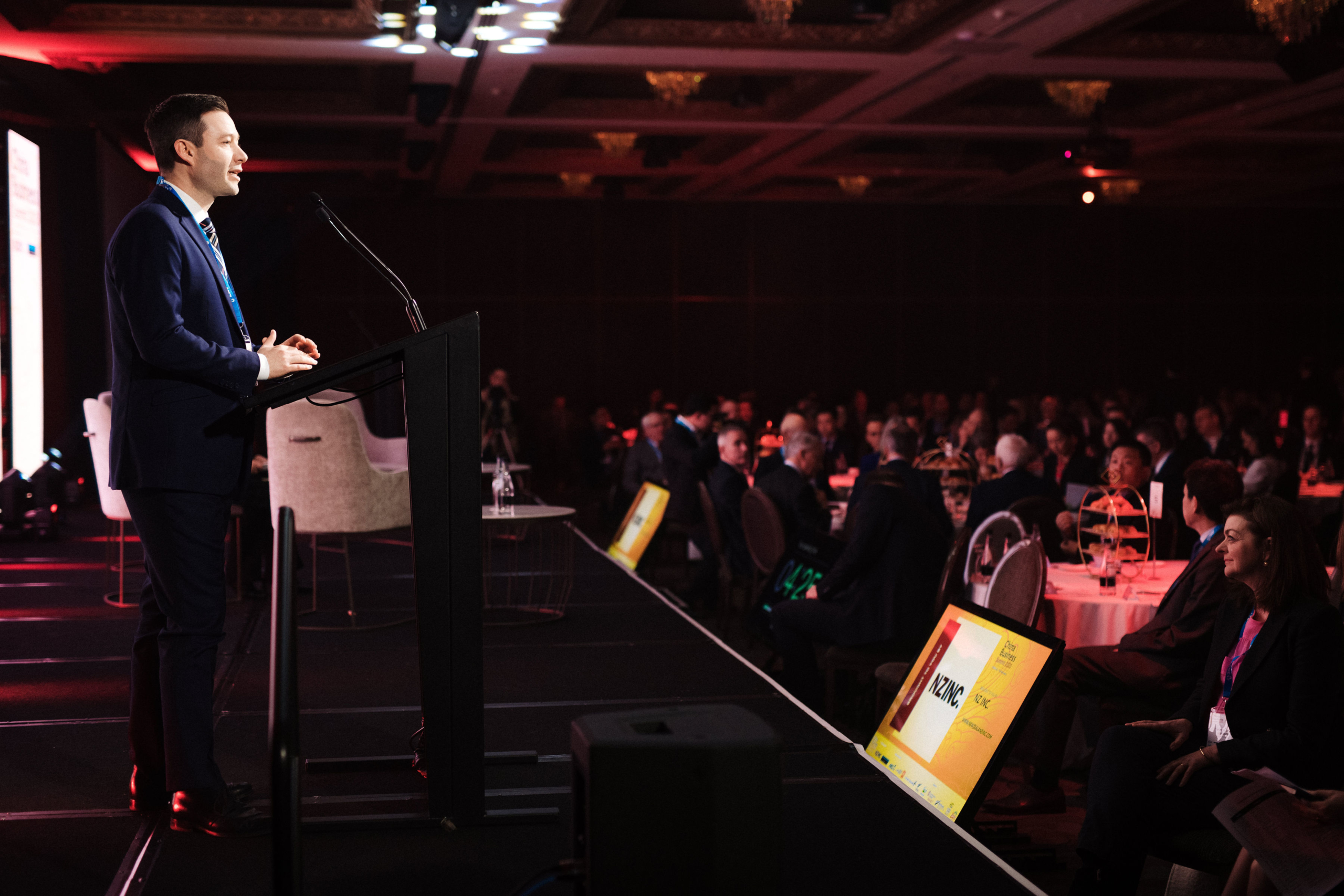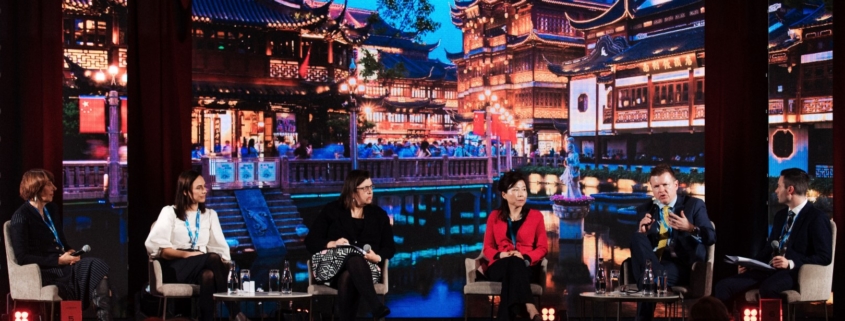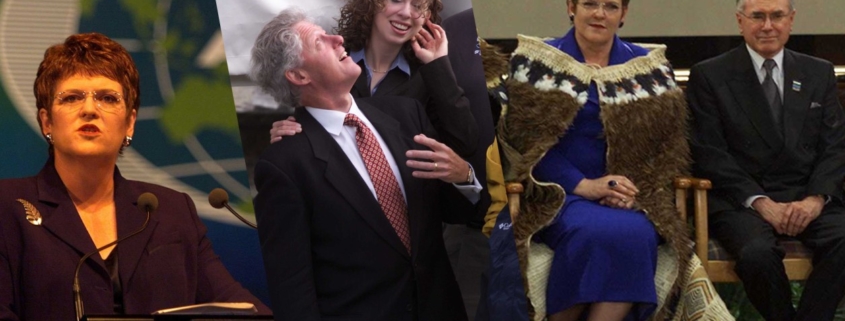With the recent announcement that New Zealand will no longer host world leaders for APEC Leaders’ Week next year, but will instead take the Summit digital, I took a look through the news archives to see what we are going to miss out on.
When NZ hosted APEC last in 1999:
👮🏻♂️ NZ security guards mistook Hillary Clinton’s mother for part of the public crowd and pushed her aside – twice.
🏉 Clinton told Sir Edmund Hillary – then aged 80 – that he might be ready for a new challenge: “I hear the All Blacks may need a new fullback.”
🛍️ Suburban shopping centres were busier than ever as the public were encouraged to avoid the city centre.
📰 International media published some bizarre stories about New Zealand and our culture.
THE POWER OF APEC
As Auckland was preparing to host APEC in 1999, the news was dominated by East Timor and its recent vote in favour of independence. The aftermath of the referendum saw mass violence, killings and destruction targeted at the East Timorese.
APEC 1999 was due to be held just days later, with Indonesia present. This introduced a challenge for New Zealand: APEC has strict rules around it that govern what can and cannot be discussed – APEC is about the economy and not about foreign policy.
At the time, New Zealand Prime Minister Jenny Shipley said: “You only get leaders of economies to come if they know that their foreign policy won’t be objected to scrutiny or interfered with. But having said that, the power of APEC, where you’ve got leaders and foreign ministers together physically in a country was always potentially going to be useful.”

Making a tough call
It was decided that an emergency meeting of foreign minister would take place in Auckland before APEC officially began. Shipley had to phone Indonesian President B.J. Habibie to let him know the plan, and said it was a difficult phone call.
“I had a number of officials in the room with me and I held the phone out at one stage where I was being yelled at. But the thing that changed was that not only Western-aligned economies within APEC but also Singapore and others in the region felt that this was something that had to be progressed.”
As Foreign Minister Don McKinnon noted, bringing leaders to one location forced them to take a position on Indonesia’s behaviour they could otherwise have simply avoided.
As a result, after lobbying from Australian Prime Minister John Howard, the United States announced it would no longer support the IMF bailout of Indonesia unless their army withdrew and allowed peacekeepers in. Within hours Indonesia changed their stance, and an Australian-led peacekeeping force left for East Timor just eight days later along with support from New Zealand troops.
THE STAR OF THE SUMMIT
US President Bill Clinton’s appearance at APEC 1999 marked just the second time a US President visited New Zealand (Lyndon B. Johnson visited in 1966 and met with Prime Minister Keith Holyoake). Clinton was warmly received by the public, using his innate ability to charm the crowds during walkabouts.
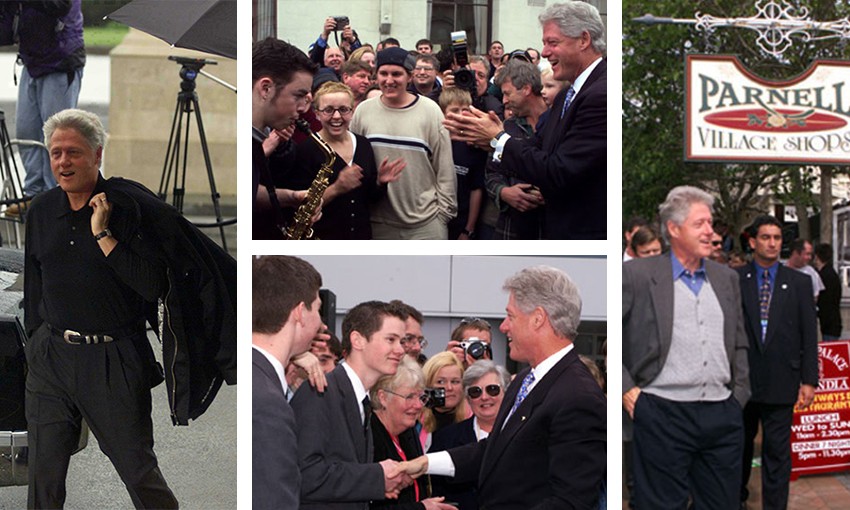
It was reported Clinton was so fascinated by Māori culture at Auckland Museum that he asked Shipley if she would arrange for the museum’s shop to open for business because he wanted to “buy it out”. With shop staff off duty for the gathering of leaders, it fell on the museum director to open the store for the President. Clinton and the United States National Security Adviser, Sandy Berger, were reputed to have spent “a lot of money” during their 25-minute unscheduled shopping spree, with Clinton sporting one of his purchases – a circular greenstone pendant – around his neck during his time in Auckland.
On another shopping trip, he took daughter Chelsea Clinton on a two-hour trip to Parnell and Queen Street where they bought a handmade clay ocarina (wind instrument), a black pottery cat, a $400 crystal vase, two $49 oil bottles and a $27 vanilla-scented candle.
Clinton attracted thousands to the streets to catch a glimpse of him – and not just in Auckland. A crowd of 5000 came to the International Antarctic Centre in Christchurch; hundreds
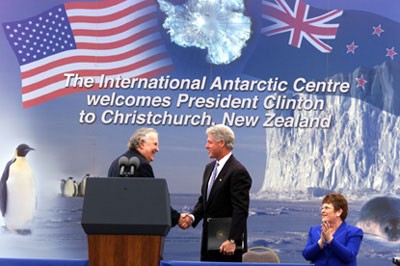
waited for three hours outside a lakefront Queenstown restaurant to spot the popular president.
For one of his appearances, Clinton shared the stage with Sir Edmund Hillary. He told the audience he was thrilled to share the stage with the adventurer and said he was “referred to in our family as my second-favourite Hillary.” He suggested that Sir Edmund – then aged 80 – might be ready for a new challenge: “I hear the All Blacks may need a new fullback.”
Speaking about the upcoming America’s Cup challenge, Clinton remarked: “We even let you borrow the America’s Cup from time to time. We hope to reverse our generosity shortly.”
SUPERPOWERS MEET
New Zealand’s hosting of APEC also marked the start of a thawing rela
tionship between the US and China – with both superpowers reopening talks while in Auckland after the US bombed China’s Embassy in Belgrade.

Another big meeting was between Clinton and Russian Prime Minister Vladimir Putin – it was the first time they had met as leaders.
In a briefing to reporters following the meeting, it was said Clinton warned Putin that corruption could “eat the heart out of Russian society.” Those comments followed reports that Russian mobsters siphoned millions of dollars out of Moscow and laundered it through the Bank of New York. It was said Putin agreed that Russia had problems and suggested a cooperative approach.
Throughout the summit, many large offices in the city centre were operating on skeleton staff, heeding pleas for the public to stay out of the city if possible. Streets and schools in Auckland, Manukau and North Shore cities were closed and many city workers were given a day off. For those that needed to come into the city centre, many travelled earlier than normal resulting in lower than usual peak traffic volumes.
This resulted in the outer suburbs of Auckland being busier than usual, while the city centre ground to a halt – impeded by presidents, protests and police.
“They should have APEC every day,” Lynnmall Deka store manager Struan Abernethy told the media – standing in the toy department and surrounded by the buzz of family shoppers. “It’s the busiest Monday we’ve had for a long time!”
A FORUM FOR FREE TRADE
One of the key themes of New Zealand’s 1999 year of hosting was lifting the support from the public for free trade – although the success of this was limited.
US Trade Representative Charlene Barshefsky outlined the problem with a warning that public opposition was the greatest threat to the world’s multilateral trading system.
“Unless that public support is regenerated, I think the World Trade Organisation is going to face tough sledding in the years ahead,” she said.
Clinton also warned of the need to put “a human face” on the global economy.
Trade Minister Lockwood Smith said the commitment to a new global round was the meeting’s biggest achievement, but export subsidies were the single biggest trade issue for NZ. While the benefits were some years off, it was important to get the world to put the abolition of the subsidies on the agenda.
United States
Shipley joked during the Summit that she had fed President Clinton as much lamb as possible during lunches and dinners – including Manawatu lamb loins and Canterbury lamb noisettes. “I’ve eaten it all,” he joked when asked about lamb tariffs.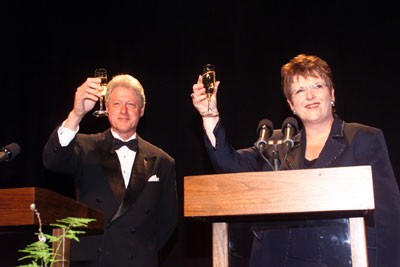
Clinton said the United States was the “champion of free trade,” despite his decision to impose tariffs on New Zealand lamb. He said these were “appropriate” given that the recommendation from the International Trade Commission had been made under United States law.
But he said he would study the “very interesting idea” of a free trade agreement between Australia, New Zealand, Chile, Singapore and the United States.
Singapore & Chile
In bilateral conversations, New Zealand announced a free trade agreement with Singapore and a scoping study of a similar deal with Chile.
Business leaders from Chile and New Zealand also met during the APEC summit to discuss the prospect of a free trade agreement between the two countries.
One of those leaders was Carter Holt Harvey chief executive Chris Liddell (now assistant to President Trump and deputy chief of staff for policy coordination in the White House). He and other leaders cautioned at the time that business deals between New Zealand and Chile have had hiccups – including an investment dispute between Carter Holt Harvey and Chilean conglomerate Copec.
CEO SUMMIT
250 executives attended the CEO Summit, including around 60 of New Zealand’s most eminent businesspeople. International delegates included General Motors chairman Jack Smith and Raymond Cesca – who was responsible for handling world trade for McDonald’s.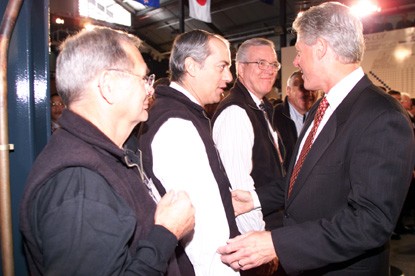
New Zealand’s delegates to the CEO Summit included just four women – Wilson & Horton corporate affairs manager Fran O’Sullivan (who was also the CEO Summit’s deputy chair), professional director Rosanne Meo, Wellington Regional Chamber of Commerce CEO Claire Johnstone and education publisher Wendy Pye.
The chair of the Summit, John Maasland, said businesspeople were keen to work closely with APEC political leaders to increase the pace of reform and make sure a gap between developed and developing countries did not widen.
Attendees called for critical trade issues to be tackled quickly, including speeding up planned moves to achieve free and open trade and investment throughout the world by 2010 for developed countries and by 2020 in developing economies. They also called for economic governance, development of greater transparency and accountability in the financial sector and a regional approach to building infrastructure in APEC economies.
The attendees recognised that APEC politicians would need a lot of courage if they were to deliver the policies that corporations want – but if that courage was not shown, then free trade would flounder, economies would contract and people would suffer.
“We are certain that the benefits to all APEC communities will become increasingly evident if these specific actions are taken speedily and forcefully,” Maasland said.
The chief executives said their near-term challenge was to make sure the things they had talked about in Auckland over the past two days were turned into some firm policies that could be delivered in the following year’s APEC meeting in Brunei.
UNEXPECTED GLOBAL HEADLINES
There was some disappointment that New Zealand didn’t get the level of promotion that it had hoped for in international media – it was the East Timor developments that dominated the headlines. But some of the international media mentions New Zealand received included:
- The Los Angeles Times told its readers that New Zealand was “an island nation”
- The Los Angeles Times also ran a piece on its website explaining what a hongi is – alongside a photo of Clinton greeting Sir Hugh Kawharu: “the gesture is called a hongi, a native welcoming gesture”
- The Newsweek website mentioned plans for the leaders’ banquet: “In New Zealand, where sheep outnumber people 15 to 1, folks know how to party. Five top chefs have been dispatched across fjords and throughout the forests to find the best ingredients for a massive feast”
- The Boston Globe reported on New Zealand security guards mistaking Clinton’s mother-in-law, Dorothy Rodham, for part of the public crowd – twice pushing her aside during the President’s shopping walkabout. “The confusion didn’t stop Clinton from going on a buying binge. At one point he stopped in a store called Out Of New Zealand and bought an ocarina, a small traditional flute made of clay.”
- The Boston Globe also reported that New Zealand would be the first country in the world to celebrate the millennium.
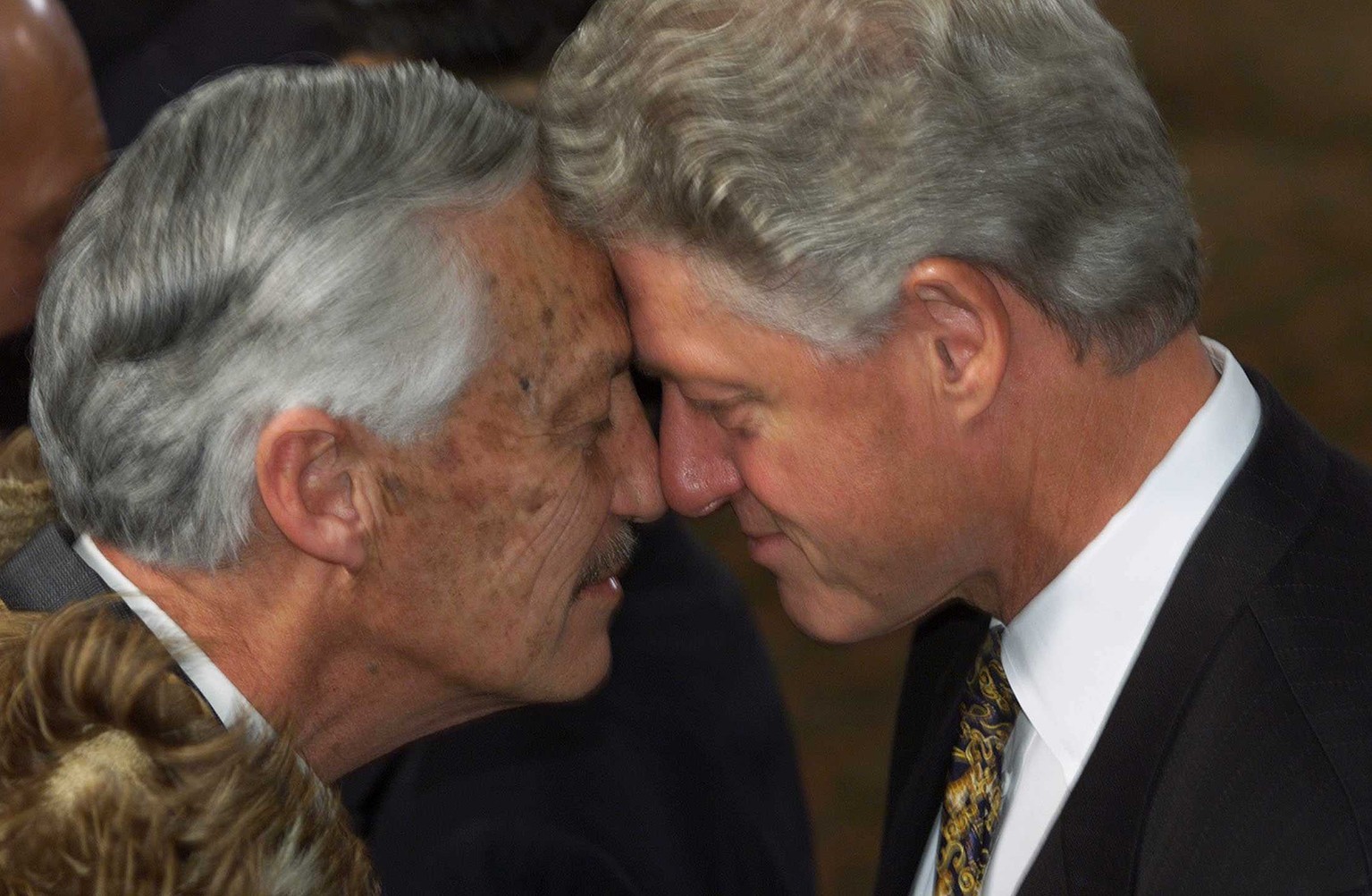
SHIPLEY OUT, CLARK IN
Following the APEC Summit, a TV3/CM Research poll saw her rise from 14 per cent to 20 per cent as preferred Prime Minister – two points ahead of then-Labour leader Helen Clark.
In the same poll, 38% said they had a better opinion of Shipley after APEC, with 8% saying they now had a worse opinion of her.
However, the National party’s support didn’t shift significantly post-APEC. The poll saw its support rise only one percentage point to 33 per cent. Labour polled 39 per cent (compared to 40 per cent one month earlier). Support for Alliance was down one to 6 per cent, support for New Zealand First remained at 7 per cent, Act’s support lifted one to 7 per cent, support for the Greens fell from 2.6 per cent to 2.4 per cent.
The 1999 New Zealand general election was held on 27 November 1999 – two months following APEC. The National party, led by Shipley, was defeated, replaced by a coalition of Helen Clark’s Labour party and Alliance – who led New Zealand until 2008.
